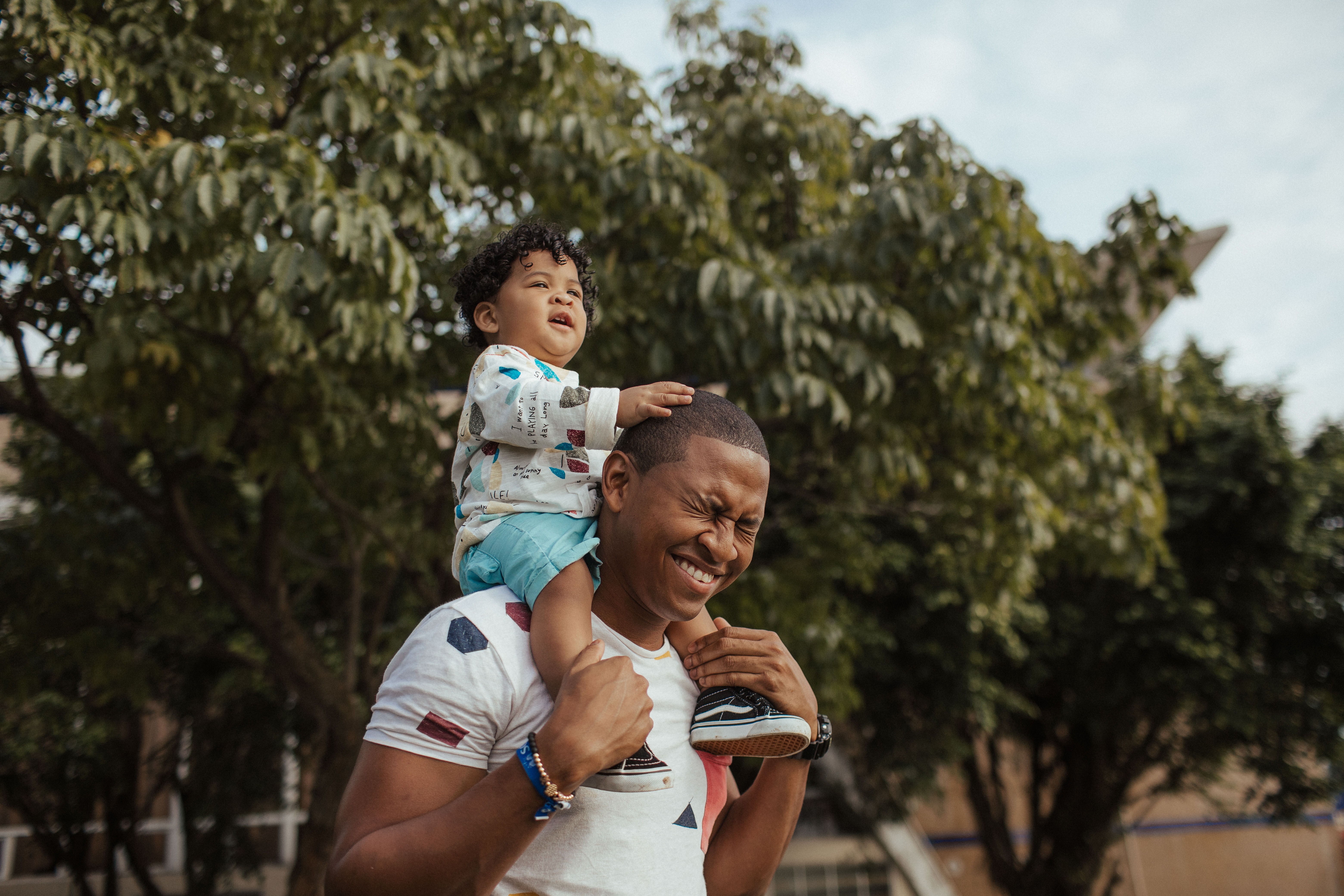Activities and ideas to support your child’s language development

Listening
Sit quietly together and listen to the sounds around you. What can you hear? The sounds will be different, depending upon whether you are inside or outside.
Try hiding a noisy object in the room, such as a phone playing music or a noisy toy. Can your child find it? This is a great way to develop listening skills.
Talking
Store toys where your child can see them, but where they are out of reach. This will encourage them to communicate with you, about what they want.
At meal or drink times, don’t automatically give your child everything they need. Wait for them to ask for what they want. You can also pretend to make a mistake, by giving them the wrong thing, such as a spoon instead of a cup, so they can tell you it’s wrong!
Understanding
Play pretend shopping by using everyday items from your kitchen cupboards, that your child will recognise, such as an apple, a packet of cereal, a small tin of beans and a carrot (four to five items is enough to start with). Put them on a low table, which has now become ‘the shop’. Give your child a fabric bag, ask them to go to the shop and “buy me a carrot”. Begin by only asking for one item and if this goes well, you can then ask for two or maybe three items next time!
You can also get your child to help when you’re sorting the laundry or filling / emptying the washing machine. Talk about the different clothes and who they belong to, such as “daddy’s sock” and “your sock”, find matching pairs, so “these two socks are the same” and talk about the colours, such as “mummy’s t-shirt is red”.
When you are outside, you can play ‘run and touch’. For example, say “run and touch the tree” or “run and touch the swing”. Start with naming one thing and if this goes well, you can add another place, so “run and touch the tree and then the swing”.
Social skills
Play lots of games which involve taking turns. This can be as simple as taking turns to run balls down a tube or add bricks to a tower. As your child gets older, you can introduce games with rules, such as picture lotto or snap, but look for games without too many cards (or take some out at first), so they get lots of turns with lots of success.
You can also give your child a role in family routines, even if it’s only a small one, such as helping to wash fruit or vegetables, get cutlery out at mealtimes, take things to the kitchen after meals or put their shoes away. If they need help to complete their tasks, always encourage them to ask, rather than stepping in too soon.
National information and support
Hungry Little Minds has lots of simple ideas and activities you can do to support your child’s development from birth to five years old.
National Literacy Trust has some great tips for how to talk to your baby and young child.
Words for Life offers a wide range of different activities and fun stuff to do together, from birth to 12 years old, along with a parent support section.
Top tip 3
Don’t forget to share! TV programmes and apps can be great fun and very absorbing for your child, but they will learn so much more if you join in too and talk with them about what is happening.
